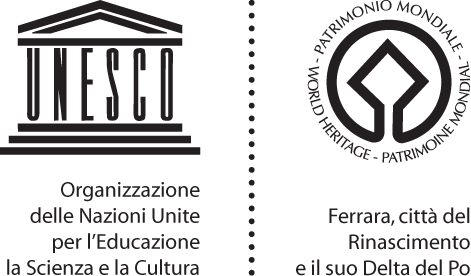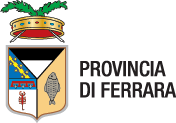Museums and galleries
Ferrara
Synagogues
The Jews’ presence in Ferrara dates back at least until the 12th Century and thanks to the religious tolerance of the Este family the community grew, welcoming refugee groups of Ashkenazi from the German Empire territories and later, Sephardic Jews expelled from Spain and Portugal.
Museum of Casa Romei
CLOSED FOR RESTORATION from November 18th, 2024
Museum of rural life
The Museum of rural life was created through the cooperation of Mr. Guido Scaramagli and the Municipality of Ferrara
National Picture Gallery
Created in 1836, the Picture Gallery was the first public collection of Ferrarese paintings, put together to bring a halt to the dispersion of local artistic patrimony by setting up a modern museum in which to conserve and promote Ferrara's art and culture
Cathedral Museum
The Cathedral Museum, sited in the ex church of San Romano, was created through a join initiative between the Cathedral Chapter and the Municipality of Ferrara with the aim of documenting the history of the most important sacred temple of Este spirituality
Modern and Contemporary Art Gallery
The Modern and Contemporary Art Gallery houses important, prestigious temporary exhibitions organised in collaboration with Ferrara Arte,...
MEIS Museo Nazionale dell'Ebraismo Italiano e della Shoah
At the National Museum of Italian Judaism and the Shoah are open the permanent exhibitions: "1938: HUMANITY DENIED" by Giovanni Grasso and Paco Lanciano and "Jews, an Italian history" to discover the history of Jews in Italy from the era of ancient Rome to the Renaissance.
Spazio Antonioni
Starting from June 1st, the Spazio Antonioni, a permanent museum, will open to the public. This museum brings to light part of the 47,000 items - including documents, films, and much more - that the Ferrara-born director Michelangelo Antonioni donated to his hometown in the mid-1990s
National Archaeological Museum
The museum, housed in the Palazzo Costabili, exhibits the findings of the Etruscan city of Spina which flourished from the 6th to the 3rd century B.C. and survived until the first centuries A.D.
Museo del Risorgimento e della Resistenza
The Museum is closed to the public until further notice.
Lapidary Museum
The Lapidary Museum, housed in the ex-church of Santa Libera, has a rich collection of Roman works in marble from the province of Ferrara
Museum of Palazzo Schifanoia
Extraordinary vestige of the splendour of the Renaissance period, Palazzo Schifanoia is the symbol of Este Ferrara. The itinerary is open to visitors (divided over 1400 square meters, 21 rooms, about 250 works of art), new layout, and new museographic concept, developed with the aim of reconnecting Ferrara with one of the most important testimonies of its history
Argenta
Valli di Argenta Museum
CLOSED The Casino di Campotto is a rural building situated at the entrance to the Oasis in via Cardinala.
Water scooping plant of Saiarino and Museum of Land Reclamation
CLOSED The Museo della Bonifica, situated at the Saiarino Pumping Station is an exemple of an industrial archaeology museum, where you can admire the complex mechanical system of land reclamation of the early 1900s.
Civic Museum
The Civic Museum of Argenta was opened in 1973 in the church of San Domenico
Bondeno
Museo Civico Archeologico "G. Ferraresi"
The museum documents the rich history of Bondeno's territory.
Civic Gallery "G. Cattabriga"
Galileo Cattabriga (1901-1969), a painter well known also outside Bondeno, gave his name to the museum housed in a warehouse in the rear of Teodoro Bonati's birthplace.
Cento
Municipal Gallery "Il Guercino"
The Municipal Gallery is housed in a Eighteenth-century building. It hosts the largest concentration in the world of masterpieces by our illustrious fellow citizen Giovanni Francesco Barbieri, known as “il Guercino” and his workshop
Gallery of Modern Art "A. Bonzagni"
Temporary closed. The Gallery of Modern Art in Cento, dedicated to the Centese painter Aroldo Bonzagni (1887-1918), was created thanks to the artist's sister who, since the 1960s donated important works to the municipal picture gallery both by his brother and by other artists related to him.
Sandro Parmeggiani Museum
In 1995 the donation of several paintings of the artist Sandro Parmeggiani, gave birth to a museum dedicated to him...






